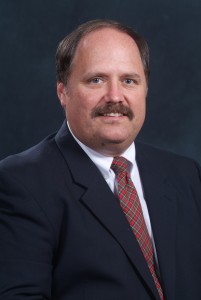
Ron Rychlak. Photo by Harry Briscoe
BIRMINGHAM, Ala. – The Southeastern Conference has appointed nine individuals from campuses across the SEC to form a working group to review and discuss issues concerning compliance with NCAA regulations and effective operation within the NCAA governance process.
Commissioner Greg Sankey announced the creation of the group Thursday. He had announced in July 2015 at the SEC’s annual Football Media Days that he would convene the SEC Working Group on Compliance, Enforcement and Governance, a collection of campus leaders to review and discuss NCAA issues.
“This working group will work to renew and strengthen the commitment the conference membership made more than 12 years ago to a culture of compliance in the SEC,” Sankey said. “These campus leaders will review and update the principles which formed the foundation of that commitment and establish effective procedures for the SEC’s participation in the new NCAA governance structure.”
Jere Morehead, president of the University of Georgia, will serve as chair of the working group, which includes Ron Rychlak, professor of law and Jamie L. Whitten Chair of Law and Government at the University of Mississippi. Rychlak also serves as the faculty representative on the university’s Athletics Committee.
Remaining members of the working group are R. Stuart Bell, president, University of Alabama; Mitch Barnhart, director of athletics, University of Kentucky; Ray Tanner, director of athletics, University of South Carolina; Michael Sagas, faculty athletics representative, University of Florida; Samantha Huge, senior woman administrator, Texas A&M University; Rich McGlynn, executive associate athletics director for compliance, Auburn University; and Jon Fagg, senior associate athletics director for compliance, University of Arkansas.
“Compliance with NCAA regulations and the development of processes for effective participation by the SEC in NCAA governance are critical to the future of this conference,” Morehead said. “This working group is a proactive initiative to put the SEC in position to be a leader for many years to come in the development and enforcement of NCAA rules and regulations while solidifying our culture of compliance with those rules.”
The working group will develop new strategies for renewing and strengthening the conferencewide commitment to NCAA compliance while continuing to fulfill the conference competitive objectives.
Also, the group will review the updated enforcement model, which is expected to include dialogue with the NCAA vice president for enforcement; establish best practices for enforcement within the SEC; and update minimum penalties established by the conference for certain Level III and Level IV rules violations.
In addition, the group will develop strategies intended to enhance the conference legislative process, including development of a proactive legislative agenda to be advanced by the SEC. The group will analyze the new NCAA governance structure and its implications for the SEC, with the purpose of developing meeting schedules, committee participation, policy development and effective communication strategies.
The group will also seek to improve interaction among the autonomy conferences as part of the NCAA legislative and governance process and address other related issues as determined by the working group.
Updates will be provided to key SEC leadership groups at regular intervals, with an initial report submitted for review and discussion by the SEC membership in the spring of 2016 with the working group expected to conclude its work before the SEC’s spring meetings in 2017.